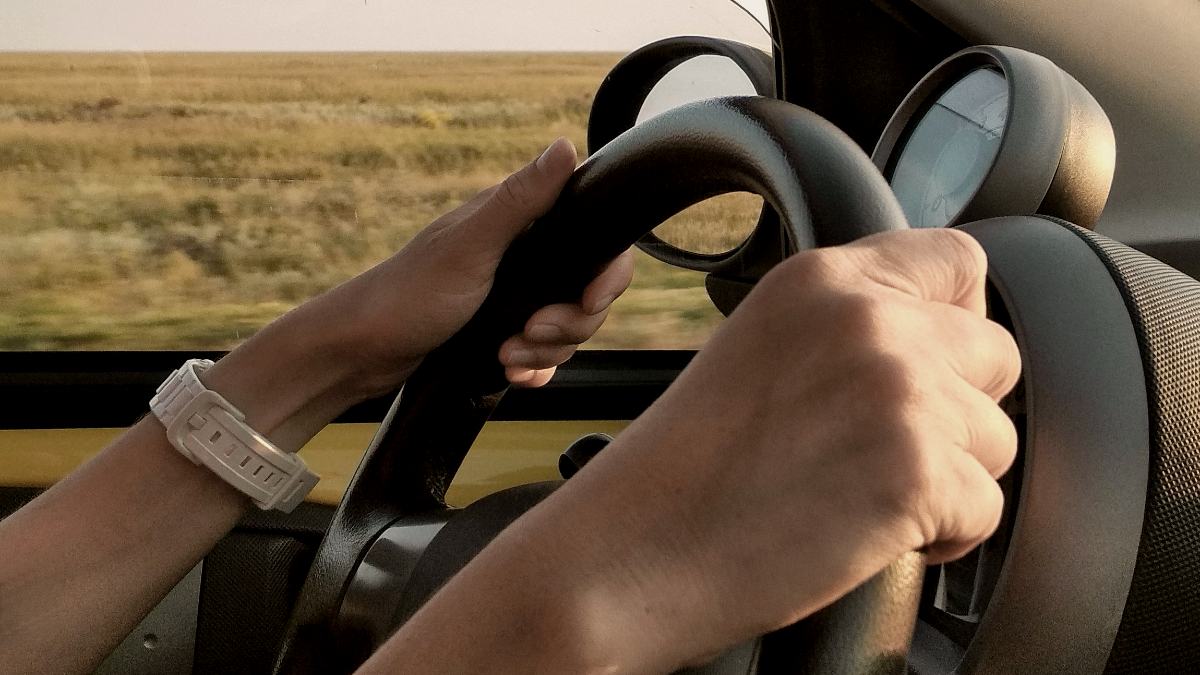
University Of Zurich Research Maps Out The Modern-Day 'Ecology Of Risk'
Researchers Renato Frey and Olivia Fischer from the University of Zurich reveal why the most common modern risks are rooted in careers, finances and ordinary life decisions.

By Mark Travers, Ph.D. | November 19, 2025
A new study published in Psychological Science has offered one of the most comprehensive snapshots to date of how people navigate risk in everyday life. Drawing on more than 4,000 participants, the researchers compiled the 100 most common modern risks. In turn, they uncovered a set of patterns that look strikingly different from the thrill-seeking stereotypes that have dominated psychology for decades.
I spoke with the lead authors of the study — Professor Renato Frey and PhD student Olivia Fischer — to unpack what these findings reveal about how risk-taking actually operates in 2025, why occupational and financial risks loom larger than ever and how uncertainty shapes the choices we make in fast-changing environments. Here's a summary of our conversation.
What initially inspired you to investigate real-life risky choices rather than the more traditional, lab-based measures of risk-taking?
Renato Frey: Throughout my career, I have been working a lot with the more traditional measures of risk taking, including self-report scales and behavioral tasks. Although both types of measures have their specific merits, we also kept observing severe limitations: Some of the self-report scales appear to tap into outdated and, from today's perspective, outright strange choices.
Conversely, in some of the behavioral tasks, it is surprisingly difficult to estimate consistent model parameters — potentially because people do not have very "strong" preferences in such artificial settings. It thus occurred to us: Why not simply ask laypeople about their real-life experiences regarding what constitutes risky choices? In the behavioral sciences, such discovery-oriented research can often be instrumental to identify novel phenomena.
How did you go about collecting and classifying over 4,000 people's real-world decisions into the 100 risky choices of modern life? And were there any that particularly surprised you?
Olivia Fischer: In our studies, we asked people to report a single risky choice that they themselves or someone from their wider social network had faced. Then, using a specific coding scheme, we identified unique choices from the entire set.
It was interesting to see that, although one might associate risk taking with actively engaging in a particular behavior, in several cases, people reported choices in which the risky option consisted of inaction: not getting insurance, not doing prenatal tests during pregnancy, remaining abroad instead of moving back home. Also, we were quite surprised to see that, overall, people reported the most risky choices from the occupational domain.
One of your key findings was that the ecology of risk remained remarkably stable across a year, even under very different circumstances. Why do you think people's perceptions of risk are so stable?
Renato Frey: The stability of the ecology of risk mostly manifested itself in terms of the life domains from which our participants reported risky choices. That is, individual participants may indeed be confronted with different risky choices at different points in time. However, as a whole, people faced risky choices from specific life domains about equally often before versus during the COVID-19 pandemic. This may be related to relatively established social structures (e.g., how to prioritize work, recreation, social relations, etc.) that do not change easily in the short term.
Given how fast our world changes, do you think the ecology of risk will continue to remain stable, or are we approaching a point where entirely new categories of risk will emerge?
Olivia Fischer: The current ecology of risk definitely includes some novel choices that emerged in the last decade or two, such as using a smartphone, social media or paying digitally. Clearly, as new technologies emerge, individuals and society will face new risky choices.
At the same time, our research also shows that certain choices may become more salient at a particular point in time, such as whether to get vaccinated during a global pandemic. In other words, the ecology of risk may evolve in response to current events and societal developments, whether or not choices related to these events are "novel" per se.
After conducting this research, do you view risk-taking more as a fixed personality trait or as a context-dependent behavior that shifts with social and cultural change?
Renato Frey: Our findings from this study do not directly speak to this question. Yet, from our research more generally, we know that people differ in terms of their general risk preferences — that is, whether someone on average rather seeks or avoids risks. That said, most decisions are strongly state-specific, meaning that they heavily depend on the current situation and context. For this reason, we currently focus on measuring and modeling decision making in the moment using mobile assessments.
What advice would you give to people who struggle with balancing caution and risk in their everyday decisions?
Renato Frey: It is important to keep in mind that there exist different types of uncertainty in real life: Epistemic uncertainty refers to things we currently do not know, but which we could in principle know by searching for additional information and seeking advice. Being cautious is thus instrumental to reduce this type of uncertainty and make an informed choice.
Yet, many choices additionally involve aleatory uncertainty, that is, the risks inherent in a decision situation that we cannot further reduce (e.g., when playing roulette the odds of winning are fixed and known a-priori). Thus, my advice would be to reduce epistemic uncertainty as much as possible before making a decision — but then accept that some degree of risk will remain in most decision situations — to then evaluate whether one is willing to take that risk and make an informed choice.
Do you take risks for the thrill of it? Take this science-backed test to find out if you're sensation seeker: Sensation Seeking Scale
